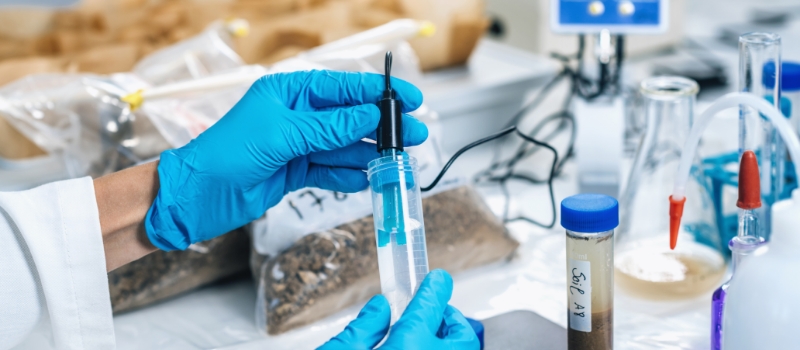Main Objectives of Analyzing Soil Structure and Properties
Soil sample testing provides growers, farmers, and land managers with data that helps them make informed decisions about soil management practices, improve soil health and fertility, and protect the environment.
Determine the Nutrient Content of Soil Sample
Not all lands are fit for growing crops. This is due to the nutrients found in the soil. Soil nutrient testing reveals the availability of essential nutrients, including nitrogen, phosphorus, and potassium, critical for plant growth and yield. Soil sampling analysis also helps identify secondary and micronutrients present in the soil in limited quantities.
Assess Soil Fertility
One way for land managers to optimize crop production is by assessing soil fertility. Conducting soil fertility tests, which include measuring the pH level using a soil pH tester and analyzing organic matter and other properties, determines soil deficiencies or excesses crucial to plant growth. The results from these soil fertility tests help growers select appropriate crop varieties well adapted to the climate and soil conditions.
Identify Soil Contaminants
Soil contaminants such as heavy metals and pesticides threaten plant growth and human health. Through soil sample analysis, land managers can keep crops healthy and people safe from harmful pollutants.
Protect the Environment
Fertilizers provide necessary soil nutrients. However, over-fertilization and using incorrect fertilizers can cause adverse effects on the environment, including soil degradation, groundwater contamination, and nutrient pollution. Farm managers can avoid these by testing the soil properties of their land and applying the right type and amount of fertilizers based on the results of the soil sampling analysis.







